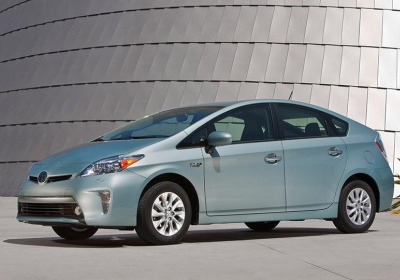Toyota tests chips that improve hybrid efficiency by 10 percent
Tue, 20 May 2014
Toyota announced on Tuesday that it has developed a new semiconductor, claiming it can boost fuel efficiency in hybrid cars by an impressive 10 percent. The semiconductors manage the flow of electricity through the power-control unit that connects the battery to an electric or hybrid car's motor and generator. The newly developed semiconductors are said to consume only a tenth of the energy of today's chips, while allowing the power-control unit to be 80 percent smaller. The savings come as a result of less energy being lost through heat.
So far, Toyota has achieved a 5-percent improvement in fuel efficiency in the current vehicles it has fielded to test the new semiconductors. The new technology uses silicon carbide, instead of simply silicon, to make the semiconductor wafers. By using this material, Toyota engineers have found a way to decrease the loss of energy that is dissipated as heat.
"One of the keys to improving fuel efficiency is improving power semiconductor efficiency," said Kimimori Hamada, project general manager of Toyota's electronics development division.
Silicon-carbide semiconductors can switch on and off at much higher temperatures, which makes them more efficient, in addition to saving space normally taken by power control units that are used to temporarily store power.
It will take a while for the new semiconductors to find their way into production cars, such as Toyota's Prius. The company says that it will be able to commercialize the technology around 2020.
To demonstrate the space savings that can be realized through silicon-carbide semiconductors, Toyota displayed an existing power-control unit, which is quite bulky, next to a new shoebox-sized power-control unit.
Toyota seeks to increase mpg figures by making improvements in every area including batteries, engines, electronic components and aerodynamics. For the semiconductors, substantial technical barriers still must be overcome.
By Jay Ramey

